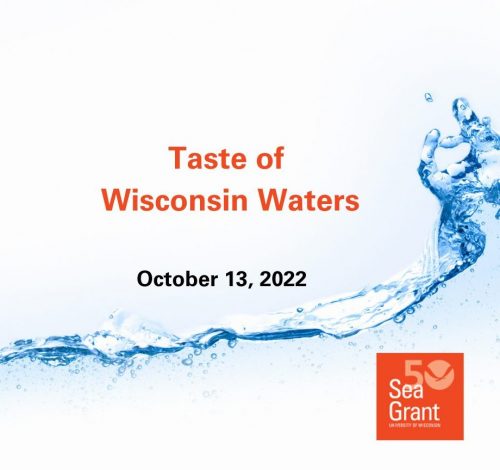
Taste of Wisconsin Waters
The Taste of Wisconsin Waters was an after-work event being held on October 13, 2022, at The Tinsmith in Madison, Wisconsin, from 4:30-6:30 pm. The main purpose of the event was to showcase the science, policy and people of Wisconsin bringing fish, aquatic produce and water to our tables. Taste of Wisconsin Waters was hosted by Wisconsin Sea Grant, one of 34 university-based programs in the National Oceanic and Atmospheric Administration’s (NOAA) Sea Grant network*.
Highlights included:
- You be the judge:
- Wisconsin water bar — sample water from around the state and vote for your favorite.
- Fish spread tasting table — compare fish spreads from different fish markets and vote for your favorite.
- Opportunities to network with policy makers, chefs, scientists, commercial fishers, fish farmers
- Conversations with Wisconsin food-fish producers, aquatic scientists and water policy professionals
- Water-centric appetizers that featured fish and Great Lakes caviar (in this case, cisco eggs)
Event sponsor: Superior Fresh
Event contributors: Henriksen Fisheries, Baileys Harbor Fish Company, Plymouth Springs Fish Company, Dan’s Fish, Inc. and Seafood International, Bartling’s Manitowish Cranberry Co.
*The National Sea Grant College program was established by the U.S. Congress in 1966 and works to create and maintain a healthy coastal environment and economy. The Sea Grant network consists of a federal/university partnership between the National Oceanic and Atmospheric Administration (NOAA) and 34 university-based programs in every coastal and Great Lakes state, Puerto Rico, and Guam. The network draws on the expertise of more than 3,000 scientists, engineers, public outreach experts, educators and students to help citizens better understand, conserve and utilize America’s coastal resources.

